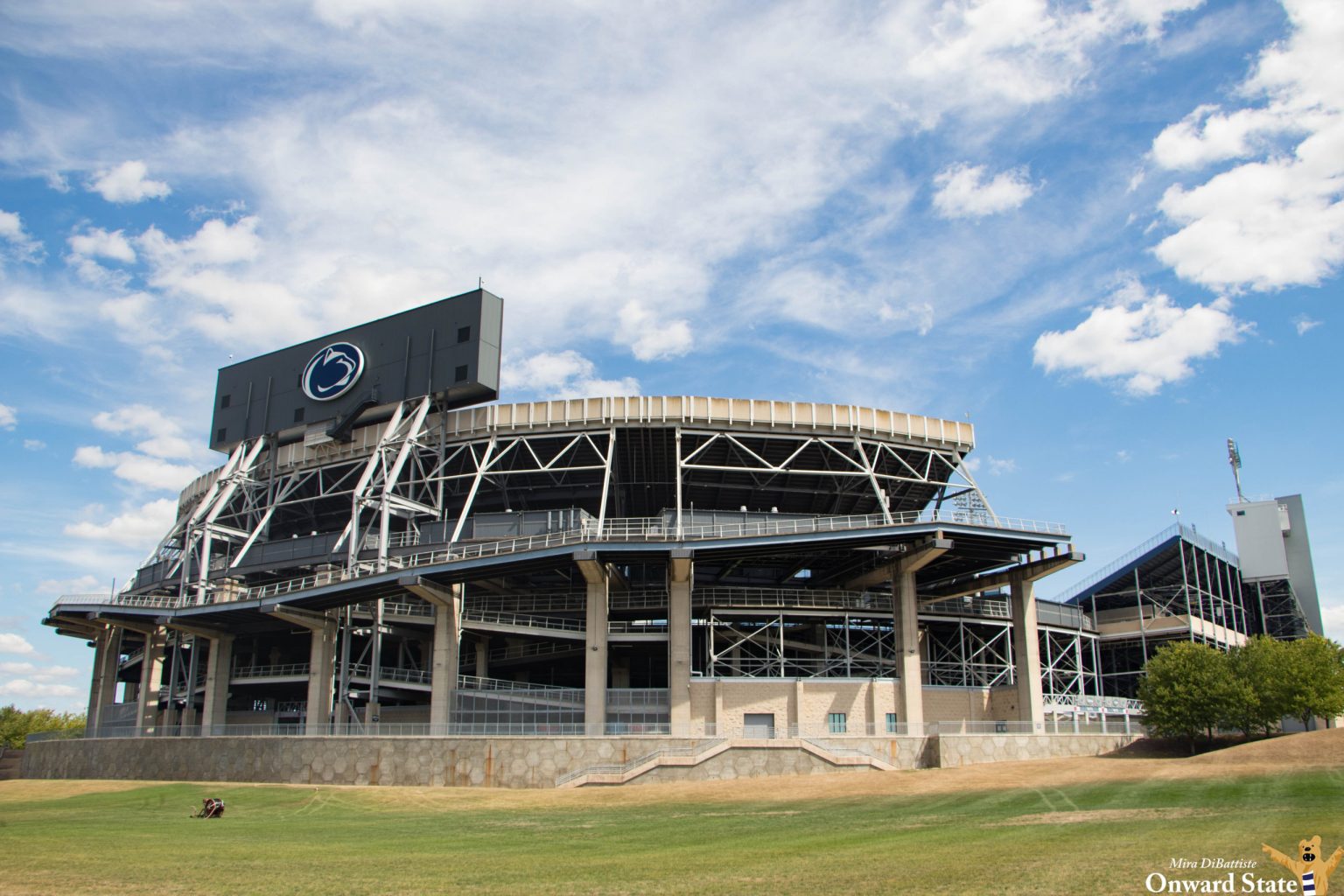Penn State’s Board of Trustees on Friday approved a plan to expand beer sales throughout Beaver Stadium during Penn State football games.
A date for when sales will begin is still being finalized, according to a statement from the Penn State Intercollegiate Athletics.
Penn State has held a public venue liquor license for the stadium since 2016, but has only permitted alcohol sales in the suite and club areas until now.
When stadium-wide sales do begin, 16-ounce cans ranging from $10 for domestic to $12 for specialty beer will be sold at 32 locations on the field, concourse and club levels until the end of the third quarter of each game. Each location will have multiple points of sale, with a total of 90, according to information presented to the board.
“Our beer service plan will keep the concession stands un-encumbered on the Field Level by offering unique selling areas,” the materials presented to the board stated. “Concourse and Club level will offer unique monitored self scan and vendor areas combined with certain in-stand additions of the product.”
Customers will be limited to two drinks at a time. Beer will not be sold in the south end of the stadium near the student section, Athletic Director Patrick Kraft said.
In response to feedback from trustees and campus and local partners, a previous plan to also offer hard seltzer has been scrapped and beer sizes were reduced from 24 ounces to 16 ounces.
“We will institute a variety of measures to ensure the expansion of alcohol sales will be done safely while also continuing to promote the family environment and Happy Valley hospitality we are all known for,” Kraft said.
Penn State Athletics has been working with Oak View Group Hospitality, which manages concessions for more than 400 venues, to develop and implement expanded beer sales at the stadium.
More than 300 additional staff members hired by OVG and certified in Pennsylvania’s Responsible Alcohol Management Program would be dedicated to oversight, rule enforcement and sales operations. A Liquor Liability Task Force will ensure all IDs are being checked.
Patrons will be required to present a government-issued identification to be scanned for verification and will be given a wristband upon their first purchase verifying that they are 21.
A “secret shopper” program will attempt to break alcohol sales and service rules in an effort to identify compliance issues.
A task force comprised of campus and community members, local public service officials and representatives from Mount Nittany Medical Center, Penn State Health and Intercollegiate Athletics will monitor the impact of alcohol sales, Kraft said.
Kraft previously told the board’s Committee on Legal and Compliance that several factors drove the decision to propose expanded alcohol sales at the stadium. Those include providing “a significant enhancement to fan experience and gameday atmosphere,” and data from other colleges that saw significant decreases in alcohol-related incidents after in-venue sales were implemented.
Eight other Big Ten universities already sell alcohol at sporting events, and Kraft said Penn State has already “successfully and safely” sold it in the club and suite areas at Beaver Stadium for five years.
The athletic department expects a “moderate six-figure loss” during the first year of sales due to non-recurring start-up costs, but “revenue growth of seven figures” in year two and beyond, Kraft said.
Trustees voted 28-5 to approve the plan. Randall Black, Donald Cairns, Valerie Detweilwer, Lynn Dietrich and Chris Hoffman voted no.
Detweiler said the Sept. 12 legal and compliance committee meeting was the first time the plan had been discussed with trustees.
She doubted that selling beer in the stadium would reduce alcohol-related incidents and questioned the extent to which the gameday experience would be enhanced. She noted that while about half of respondents to a recent survey about Beaver Stadium said they would definitely support expanded alcohol sales, about 36% said they definitely or probably would not support it.
“While their voice is less than those who support the measure it is not a small percentage,” she said, adding that it would have a negative experience on families and children whose first introduction to Penn State is at football games.
Projections show a $2.5 million profit from beer sales in year three, an amount she said isn’t much in the context of Penn State football revenues and the overall university budget.
Trustee Brandon Short said he understood being apprehensive about such a change, but that Penn State is as capable of managing alcohol sales as any other school. If fans in the club seats of the stadium can drink responsibly, so too can those in other areas of the stadium, he added.
“There are eight schools in the Big Ten that currently serve alcohol at football games. What are we saying to our administration if we say that Ohio State’s administration can effectively and successfully manage the sale of alcohol but Penn State can’t?” Short said. “What are we saying to our fans if we say Ohio State fans can drink responsibly but Penn State fans can’t?
“I believe Penn State is a special place and we can do what any other school can, but we can do it better. If we’re wrong we reserve the right to go back to the way things were. Penn State’s facing massive challenges and we must be open to change to meet those challenges.”



